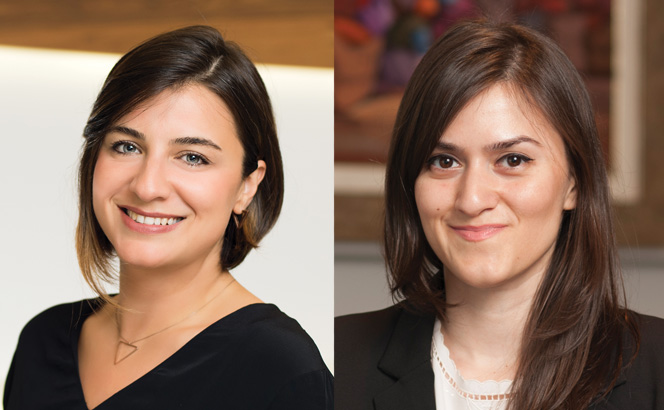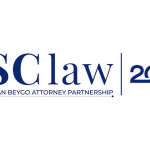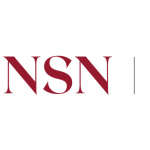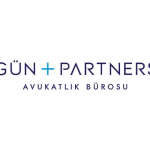Özge Atılgan Karakulak and Dicle Doğan of Gün + Partners explain how the country’s growing healthcare and pharma industries operate under current regulations
Having a population of 80 million covered by an extensive social healthcare system, Turkey’s life sciences industry is still important in size and volume.
Both the Turkish pharma and medical device industries are heavily regulated and mostly in line with EU regulations. All aspects ranging from market access to pricing and reimbursement are being covered by industry-specific regulation. The relevant bodies enforcing these regulations are the Ministry of Health (MoH), the Turkish Medicines and Medical Devices Agency established under the MoH, and the Social Security Institution (SSI).
An increase in the quality of health services and access to pharmaceuticals has inevitably and consequently increased the demand, and also resulted in an increase in public spending. This circumstance has forced the government to look for ways to rein in public spending, by incorporating rigid pricing and reimbursement policies. Indeed the SSI requests a serious discount for reimbursements, which reaches up to 41% for innovative drugs.
These pricing and reimbursement difficulties have created a barrier to access to pharmaceutical products. Procurement from abroad of pharmaceuticals via named patient programmes, which is defined as an exceptional importation of drugs, has also led to extra expenditure on the health budget. Additionally, in order to control the budget, the SSI have developed alternative reimbursement models and implemented localisation policies. Nevertheless, the healthcare industry regulation in Turkey is mostly aligned with worldwide standards.
Marketing authorisation of pharmaceuticals
Marketing authorisations of pharmaceuticals is governed by the Regulation on Licensing of Medicinal Products for Human Use. For placing a pharmaceutical product on the market, additional regulations, such as the Regulation on Labelling and Packaging of Medicinal Products for Human Use and the Regulation on Safety of Medicines, will also be applied.
No medicinal product for human use can be marketed unless it is granted a marketing authorisation (licensed) by the MoH. Abridged applications are also possible in Turkey under the conditions set forth in the Licensing Regulation. The MoH follows the European common technical document format (including five modules) for the application files. The Licensing Regulation envisages a 210-day period for the evaluation of the licence application by the MoH following the preparation of all required documents. In practice, however, this may go up to two years or more due to the good manufacturing practice certification rules of the MoH, which require that each manufacturing facility be audited by MoH personnel.
Pricing of pharmaceuticals and the fixed exchange rate
The prices of pharmaceuticals to be marketed in Turkey are set based on a reference pricing system, whereby the cheapest wholesale price in one of the listed EU countries for the same product is taken as the wholesale price in Turkey. Although to determine the prices of pharmaceuticals in Turkish lira, the currency of the defined wholesale price is converted into Turkish lira, the conversion is not made according to the current exchange rate. In order to avoid the reflection of exchange rate fluctuations on the prices of pharmaceuticals, the MoH issue a fixed exchange rate to be applicable in the pricing of medicines. However, the exchange rate defined by the MoH applied to the reference price taken from the respective EU country gives out a much lower price than if it was converted at the current rate. The rate for 2019 was determined as TRY 3.40 by the MoH. On the other hand, the current exchange rate for the euro is TRY 6.34 on average in 2019.
Market access
Until recently, there was no direct contractual relationship between the SSI and the pharmaceutical companies regarding the pharmaceuticals purchased by the state. The pharma companies applied for the reimbursement of their products to the SSI and once listed, the pharma companies sold their products to the warehouses, which distribute the products to the hospitals and pharmacies. In line with this sales and distribution chain, the SSI reimburses the hospitals or the pharmacies the price of the listed products.
With the enactment of some regulations in the past couple of years, alternative reimbursement models have also become a hot topic in the Turkish healthcare industry, allowing the pharma companies and the SSI the benefit of discussing the terms and conditions of an alternative reimbursement model for special products. The system aims for the ultimate purpose of providing quicker access for patients to innovative pharmaceuticals along with ensuring their reimbursement.
Advertisement and promotion
According to the Regulation on Promotional Activities of Medicinal Products for Human Use, any advertisement of pharmaceuticals to the general public is prohibited, whether made directly or indirectly, through any public media or communication channels, including the internet. The promotion of pharmaceuticals shall be made only to physicians, dentists and pharmacists. The interaction between the pharma companies and patients shall therefore be at a minimum level.
The advertisement and promotion of medical devices is regulated by the Regulation on the Sales, Advertisement and Promotion of Medical Devices. Accordingly, medical devices that must be used or administered exclusively by healthcare professionals and medical devices within the scope of the reimbursement cannot be advertised to the public, either directly or indirectly. However, the advertisement of devices intended for personal use and that do not fall within the scope of reimbursement is allowed.
Both promotion regulations regulate promotional materials, scientific and educational activities, sponsorships, free samples and donations to healthcare organisations.
For more information, please contact:
Özge Atılgan Karakulak, partner
T: + 90 (212) 354 00 24
Dicle Doğan, managing associate
T: + 90 (212) 354 00 24
Gün + Partners Avukatlık Bürosu
Kore Şehitleri Cad. 17
Zincirlikuyu 34394
Istanbul
















